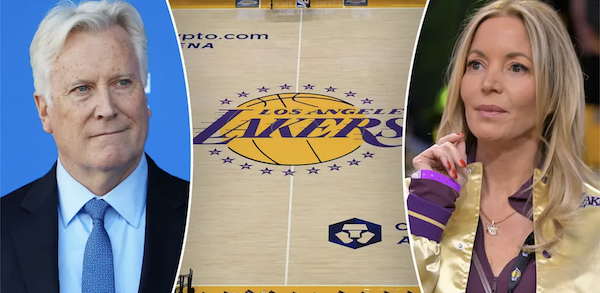Market scorecard
US markets wrapped up a volatile month on a positive note Friday, as strong earnings reignited momentum in the bull market. It was a flat week for the S&P 500, but the Nasdaq rose a little.
In company news, Amazon ended Friday 9.8% higher after it posted pleasing growth in its AWS cloud division. Elsewhere, internet traffic management company Cloudflare was up 13.8% thanks to stronger demand from large enterprise clients. Finally, Netflix gained 2.7% after announcing a 10-for-1 stock split, which will lower the trading price and broaden access for retail investors.
On Friday, the JSE All-share closed down 0.39%, but the S&P 500 rose 0.26%, and the Nasdaq was 0.61% higher. Up is better than down.
Our 10c worth
One thing, from Paul

Google had quarterly results out last week that were brilliant, propelling its share price to a new all-time high, above $280 per share. It's now the 4th most valuable company in the world, with a market cap of $3.4 trillion.
This was the first quarter ever with total revenue above $100 billion. The core search advertising business, which chips in 55% of those sales, is an absolute money machine. Paid clicks accelerated again.
Google is the best-positioned AI company, with assets across the full tech stack, meaning that they can optimize their Gemini AI tools across every part of their operations. They build their own cutting-edge Tensor AI chips, have their own world-class cloud infrastructure, employ elite coders and engineers, and have developed top-ranked large language models (LLMs) which have been trained on their own data from search, streaming (YouTube), navigation (Google Maps) and browsing (Chrome).
The Google Cloud business is flying. Cloud customer growth accelerated to 34% year-on-year. 70% of cloud customers are using an AI product, and it's bringing in lots of cash. Of course, that means they need more compute, in massive data centres. They raised capital expenditure guidance for the current full financial year from $85 billion to $92 billion.
YouTube is also performing very well and remains the #1 in streaming (Netflix is number 2). AI tools are being deployed to tweak user algorithms, to ensure a more personal, relevant and engaging experience.
This was a very strong quarter for a world-class company that has clearly got its mojo back, after a tough 2024. Sentiment towards Google was very negative back then, with lots of chatter about regulatory problems, anti-monopoly lawsuits and being split up. That's all flipped.
We are patient holders of this great business, and will remain so.
Byron's beats

It is quite a common mindset to look at the share price of a stock and be put off from buying it because it has done well in the past. You might think that you are too late and have missed the boat. Some investors look for alternatives in the same sector that may not have done as well, and buy those instead. For example, buying AMD shares instead of Nvidia.
I think that's a mistake. A company's share price often gathers momentum because the underlying business is doing very well. The market is no fool. Every time you buy a share, you are making an investment decision about the future, not the past. You have to ask yourself the question, is the price I am paying today a fair reflection of this business and is there further upside from here?
Winners are winners for a reason. Laggards are laggards for a reason.
If you feel the future is bright and the price you are paying is fair, then buy the share and forget about it for a while. Better late than never when buying into a quality company.
Michael's musings

Last week, Spain's IBEX 35 index set a new all-time high, which, off the bat, doesn't sound like standout news given that most countries' indices are setting new highs too. The reason that it is noteworthy is because the previous high was set in December 2007. The Spanish stock market has gone nowhere for 18 years, ouch.
It is a reminder that a simple 'buy and hold' strategy doesn't always work. You can't blindly buy something, and then when it drops in value, decide to hold until it recovers all your losses. This advice might sound weird given that we regularly push the need to be a long-term investor, and to not let market downturns distract you.
A key component to 'buy and hold' is owning a company that is part of a growing industry, and more importantly, that company itself needs to see continually strong revenue growth. If the business has a healthy profit margin and is growing sales at above 15% per year, a dip in share price won't last long.
Bright's banter

Sports teams are an interesting asset class. The Los Angeles Lakers are set for a new path as they change owners. Guggenheim Partners CEO Mark Walter is buying a majority stake in the NBA all-star team from the Buss family in a record $10 billion deal. While some teams are worth more on paper, this is the richest price ever paid for one.
The NBA's board of governors unanimously approved the sale, marking the end of an era for the Buss family, who bought the team for $67.5 million in 1979. Jeanie Buss will retain a 15% stake and remain team governor for at least five years.
Walter, who also owns the LA Dodgers and co-owns Chelsea FC, already held a minority stake after acquiring Phil Anschutz's 26% share in 2021. The deal reportedly gives Walter and Todd Boehly a combined 85% ownership.
The Lakers, valued second only to the Golden State Warriors ($11 billion), have benefited from a lucrative local TV deal and booming NBA valuations, fuelled by $76 billion worth of broadcast contracts.
Linkfest, lap it up
Are flying cars our future? Probably for niche parts of society - Get ready, they're here.
FlexJobs ran a survey to see who takes what leave. Almost a quarter of Americans haven't taken a single vacation day in the past year - Mexico and Costa Rica take the cup.
Signing off
Asian markets are mostly higher this morning, but Japan is offline for its Culture Day. In China, BYD shares slid to a nine-month low after October car sales fell 12% year-on-year to 441 706 vehicles, marking a second straight monthly decline and knocking the automaker down to number 2 in China's car market.
In local company news, Fintech firm Optasia will debut on the JSE tomorrow with a market cap of R23.5 billion, after its IPO closed multiple times oversubscribed at R19 per share, raising R6.5 billion and marking one of the exchange's biggest listings in a decade.
US equity futures are slightly higher in pre-market trade. The Rand is at R17.30 to the US Dollar.
It is November already. That means there are about 6 weeks left for the year, until South Africa hits 'go slow' mode for our summer break.